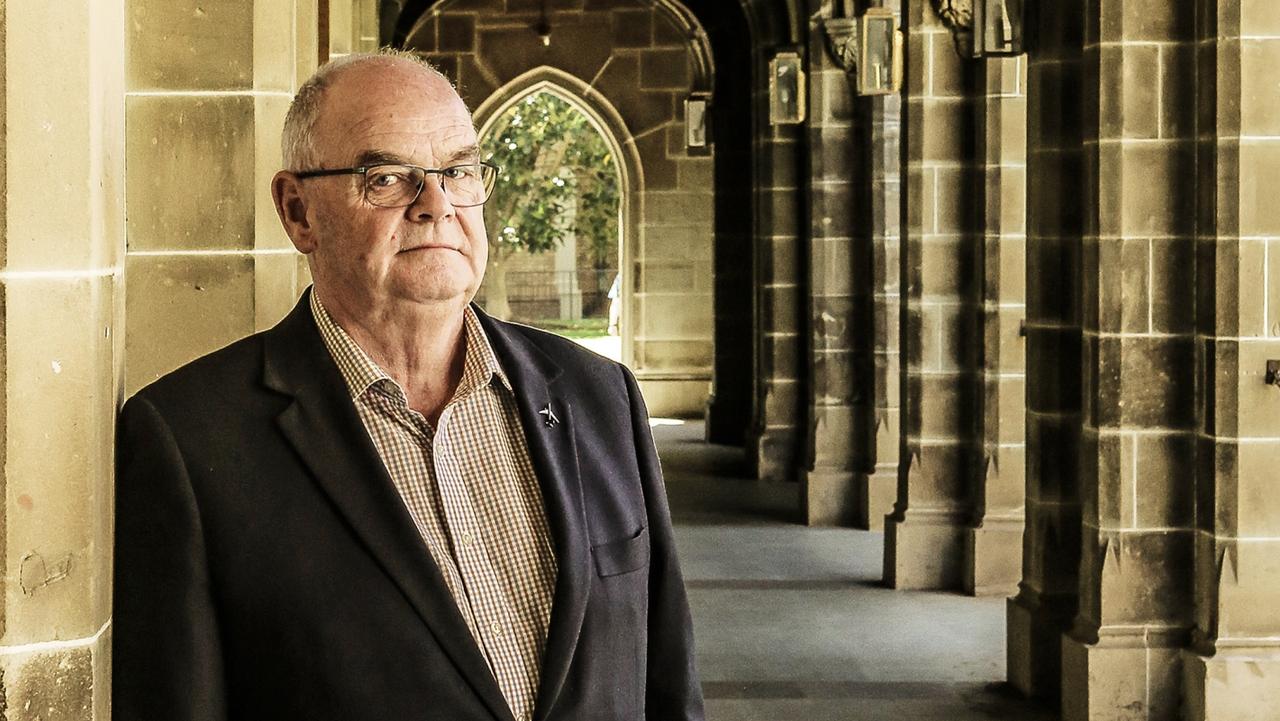Tony Abbott urged to overrule Christopher Pyne on Gonski switch
THE Abbott government is deadlocked with a strengthening alliance of states over its plans to rewrite Gonski education funding deals.
THE Abbott government is deadlocked with a strengthening alliance of conservative and Labor states over its plans to rewrite Gonski education funding deals, as legal experts reject claims the agreements are binding.
States that struck Gonski funding deals with the previous Labor government yesterday united ahead of Friday's meeting of education ministers, demanding as one that the federal Coalition honour its "binding" needs-based funding agreements. Led by NSW Liberal Premier Barry O'Farrell, premiers attacked federal Education Minister Christopher Pyne's "unacceptable" handling of the situation, and appealed directly to Tony Abbott to intervene.
Mr Pyne hardened his position, appearing to confirm some schools might lose funding despite an election promise to the contrary, while flagging a return to a Howard-era funding model discredited by NSW's Coalition government.
It would still be based on student needs but developed by the department in consultation with the minister, without the need for an outside review panel.
State and territory leaders suggested pre-election funding deals with the federal Labor government were binding - bilateral agreements in NSW, South Australia and the ACT and heads of agreement in Victoria and Tasmania.
However, three administrative and constitutional legal experts said none of the deals was likely to be legally enforceable.
Anne Twomey, professor of constitutional law at the University of Sydney, said: "It's likely that the agreements are simply that - agreements - and not binding. Normally these agreements are political in status and not legally enforced."
Two other experts - Associate Professor James Stellios, of the Australian National University, and Michael Stokes, senior lecturer at the University of Tasmania - agreed.
"Generally, they are political agreements that aren't enforceable in the courts," Dr Stellios.
After examining the Gonski heads of agreement for Tasmania, Mr Stokes said he did not believe it was binding.
The lack of legal strength to the signatory states' case appears to be fuelling an increasingly vitriolic political campaign to force the Abbott government to back down on any substantial change.
Mr O'Farrell led the charge, attacking Mr Pyne's performance and revealing he had written to the Prime Minister seeking his involvement to avoid a worsening standoff.
"I continue to be concerned in the way in which the federal Education Minister ... is dictating this debate through the media and not doing what any other reasonable minister, state or federal, would do, which is pick up the phone and explain what the hell is going on," he said.
NSW Education Minister Adrian Piccoli joined Labor state education ministers in accusing Mr Pyne of breaking an election promise of a "unity ticket" on Gonski and labelling any shift away from needs-based modelling as a "body-blow" for education. "He must be the only person in Australia who thinks the SES (socioeconomic status) model is a good model," Mr Piccoli said. "The Gonski panel said 'no' (and) if you walk into any school in NSW every teacher and principal would say 'no'."
South Australian Labor Premier Jay Weatherill said there had been a hardening of resolve among all states ahead of Friday's meeting, saying: "We're not going to let the federal government backslide on their commitment to school funding." He stopped short of committing to legal action.
Tasmanian Education Minister Nick McKim, also the state's Greens leader, said his and other states would be "demanding" Mr Pyne provide "the full $2.8 billion of (Gonski) funding".
"This is one of the most spectacular broken promises in Australian political history," Mr McKim said.
Mr Pyne yesterday further inflamed the signatory states, by appearing to abandon a pre-election promise to match promised Labor funding for every school. He said the Coalition would match the overall "funding envelope" promised by Labor, but that distribution of the funds could change.
While the Gonski model would continue in 2014, so as not to disrupt the school year, a new funding system would be drawn up for 2015, based on the Howard government's SES model.
Mr Pyne seized on the decision - made public by the former government in its pre-election fiscal update in August - to return $1.2bn in funding that had been earmarked for states that failed to sign up to Gonski back to the budget bottom line - to make his case for overhauling the system. "The implications for the new school funding model are that the funding envelope is now $1.6bn as opposed to the $2.8bn that Labor promised in the budget last year," he said.
Whereas Labor maintained it would have delivered the funding when the remaining states signed on to the Better Schools reforms, Mr Pyne ruled that out.
"It's not possible to simply find that money," the minister said.
Additional reporting: Michael Owen, Ben Packham, Paige Taylor, AAP


